
As Himself
A documentary on the rise and fall of Project Cybersyn, an attempt at a computer-managed centralized economy undertaken in Chile during the presidency of Salvador Allende.

Self (archive footage)
On October 18 2019, a student uprising was triggered in Santiago over the Chilean government’s increase in metro fare. As the country awakens to the unrelenting abuse of power enacted by a neoliberalist government, and a mistrust in the political class intensifies, we follow Angy and Felipe—two parents who embrace their new roles as activists and enlist in the expanding movement that is fighting for a new Constitution and a just society.
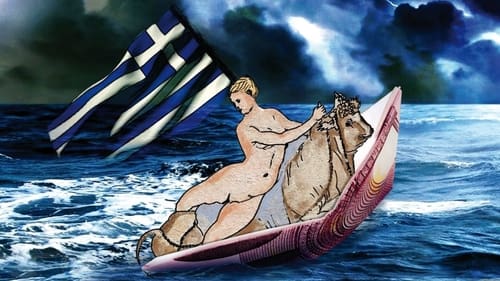
Self (archive footage)
A journey through Greece and Europe’s past and recent history: from the Second World War to the current crisis. It is a historical documentary, a look into many stories.
«If Democracy can be destroyed in Greece, it can be destroyed throughout Europe»
Paul Craig Roberts

Self (archive footage)
For years, the murder of Chilean protest singer Victor Jara was blamed on an official in Pinochet's army. Now in exile, he tries to exonerate himself.

Self (archive footage)
After the coup d'État of the Democratic government of Allende, the embassy of Italy in Santiago played a major role in helping the opposers of the regime, and extradited many of them to Italy.

Self (archive footage)
The economists behind the implementation of the most extreme capitalist system in the world observe with surprise the discontent of its countrymen. For the first time, they tell the story of how they became Milton Friedman's students in Chicago in the 1950s and what were they willing to do to pursue their extreme economic ideas, aided by Pinochet's dictatorship in the 70s. Unseen images and testimonies that allow us to understand the historic process that transformed the Chilean people and Chile in the country that it is today, an image of success and discontent.

Self (archive footage)
Documentary film which tells the story of an initiative of the government of Salvador Allende, President of Chile from 1970 to 1973, the objective of which was to bring culture closer to those who had no access to it. The People’s Train of Culture was part of the 40th measure of Allende’s programme of government which aimed to create a National Institute of Arts and Culture and colleges of art in all the country’s provinces.

Self (archive footage)
Marcia, granddaughter of Salvador Allende, the first democratic socialist president who was overthrown by the Army in September 1973, seeks to reconstruct the personal and familiar image of her grandfather, buried by his historical person, her exile and the family pain.
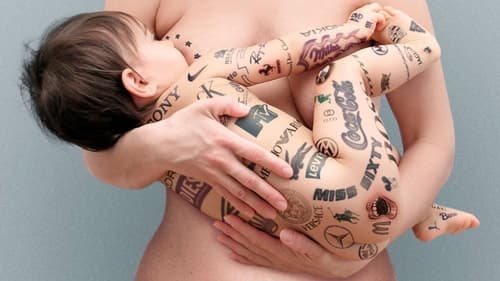
Self (archive footage)
In the last 250 years, free-market ideology has played a central role in the development of the logic and rhetoric that have influenced the daily life of populations throughout the world. It was cornered for a few decades during the twentieth century in favor of a social economy for the public interest, and then returned to the limelight in the last thirty years of the century to dominate the logics that drive world economies, doing the favor of the elites at the expense of 99%. Through the testimony of six people informed about the facts, Laissez-faire offers a historical and ideological perspective through which to identify the fundamental problems of the economic mechanism on which societies are based.

Self (archive footage)
Documental about the Second Independence of Chile. Images and videos from the period before and after September 11th, 1973

Himself (archive footage)
President Salvador Allende's topple from Chile's unstable government and the CIA's involvement in the September Coup that would turn the South American socialist country into a dictatorship.

Self (archive footage)
Documentary about the independence and history of Latin America.

Just when Chile was experiencing the last months of the Popular Unity of President Salvador Allende, Colo Colo - the most popular team in Chilean soccer - faced the 1973 Copa Libertadores de América. This benchmark led by footballers Carlos Caszely, Francisco "Chamaco" Valdés and coach Luis "Zorro" Álamos, not only managed to play the final of this competition against Independiente of Argentina, but also, its brilliant game, dynamics and drive popular turned it into the necessary balm for the fans, at a time when the Chilean political and social situation became extremely acute. Thirty-four years later, the protagonists of Colo Colo 73 relive this Copa Libertadores campaign.

Self (archive footage)
A Chilean judge uncovers long buried secrets of former dictator Augusto Pinochet and, in the process, must confront his own role in that dark past.

Self (archive sound)
Set both in Latin America and the United States, the film explores the historic and current relationship of Washington with countries such as Venezuela, Bolivia and Chile. Pilger says that the film "...tells a universal story... analysing and revealing, through vivid testimony, the story of great power behind its venerable myths. It allows us to understand the true nature of the so-called "war on terror". According to Pilger, the film’s message is that the greed and power of empire is not invincible and that people power is always the "seed beneath the snow".

Self (archive footage)
A leftist revolutionary or a reformist democrat? A committed Marxist or a constitutionalist politician? An ethical and moral man or, as Richard Nixon called him, a "son of a bitch"? In SALVADOR ALLENDE, acclaimed Chilean filmmaker Patricio Guzmán (The Battle of Chile and Chile, Obstinate Memory) returns to his native country thirty years after the 1973 military coup that overthrew Chile's Popular Unity government to examine the life of its leader, Salvador Allende, both as a politician and a man.
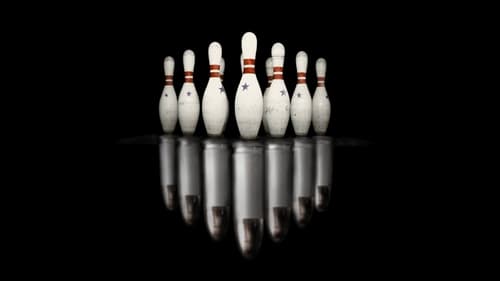
Himself - President of Chile (archive footage)
アメリカのジャーナリスト、マイケル・ムーアによるドキュメンタリー。アメリカの銃社会を取り上げ、各界の著名人に突撃取材を敢行。そのパフォーマンス的取材力は本作をリアルなエンタテインメントにしている。

Self (archive footage)
The adventures of a young man as he moves from the Latin-American revolutions in the sixties and seventies, through Hungary in the eighties, to the Croatian war in 1991.

Self (archive footage)
After decades of fascist rule in Chile, Patricio Guzmán returns to his country to screen his documentary The Battle of Chile.

Self (archive footage)
Documentary about the life and works of Italian filmmaker Roberto Rossellini.

In 1985, Miguel Littin returned clandestinely to Chile and made this documentary divided in four parts about the political reality of the country. The parts are titled, Miguel Littin: Clandestine in Chile; The North of Chile: When I Fled to the Pampa; From the Frontier to the Interior of Chile in Flames; and Allende: the Time of History, the film features testimony from Garcia Marquez, Fidel Castro and Hortensia Bussi. Also shown is the Chile of Augusto Pinochet and Salvador Allende. When Littin returned to Spain and finished his work, Gabriel Garcia Marquez set out to write the story of the film, published under the title Clandestine in Chile: the Adventures of Miguel Littin, which quickly became a best seller.

Self - Chilean President (archive footage)
A controversial three part critical documentary on the history of the CIA.

Self (archive footage)
Guzmán’s final instalment shifts from covering the actions of Allende’s opponents to those who battled to revive & promote their toppled leader’s vision for a new Chile.
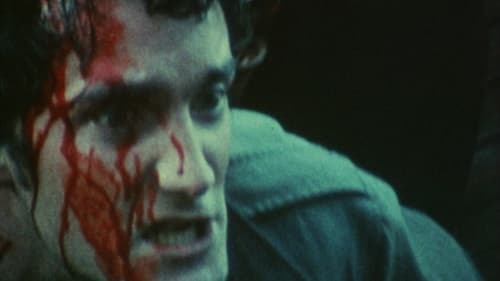
Self (archive footage) (uncredited)
French essay film focusing on global political turmoil in the 1960s and '70s, particularly the rise of the New Left in France and the development of socialist movements in Latin America.

Self (archive footage)
Chronicles the events immediately surrounding the CIA- supported coup itself.

Self (archive footage)
The chronicle of the political tension in Chile in 1973 and of the violent counter revolution against the democratically elected government of Salvador Allende.

Self (archive footage)
In the spring of 1974, a camera team from Studio H&S succeeded against the explicit orders of the Junta’s Chancellery, entered into two large concentration camps in the north of the country - Chacabuco and Pisagua - leaving with filmed sequences and sound recordings.

Salvador Allende interviewed by Régis Debray in 1971.
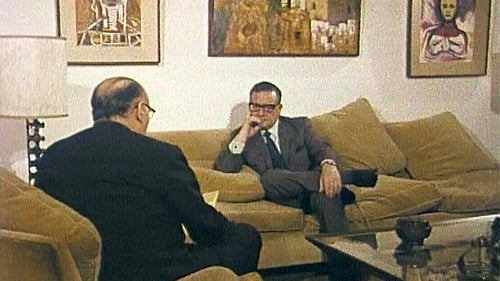
Self - Interviewee
An interview with the president of Chile conducted by Roberto Rossellini in 1971, but broadcast only after his death.

Himself
After providing a pictorial vision of Chile, from north to south, President Salvador Allende's tour of the following countries is recorded: Mexico, Algeria, USSR, USA and Cuba. In each place, scenes of welcoming demonstrations, official acts and typical archive notes are presented.

Él mismo
In November 1971, Salvador Allende and Fidel Castro chat to each other about revolution, imperialism, oligarchy, underdevelopment, cultural dependency and economics.

Self
On January 4, 1971, an extensive dialogue takes place between the president of Chile Salvador Allende and the French intellectual Regis Debray, a discussion about the Chilean process towards the installation of a socialist government. Filmed by a team from Chilefilms, a state-owned company dedicated to the production of audiovisual works, it is a unique testimony to Allende's thinking in the first year of his government.

Self
This interview was conducted shortly after the late President Dr. Salvador Allende won the Chilean elections of 1970. Dr. Salvador Allende was the first democratically elected socialist president in Latin America. Three years later, Allende was killed during a coupe lead by General that overthrew the Allende government.






























